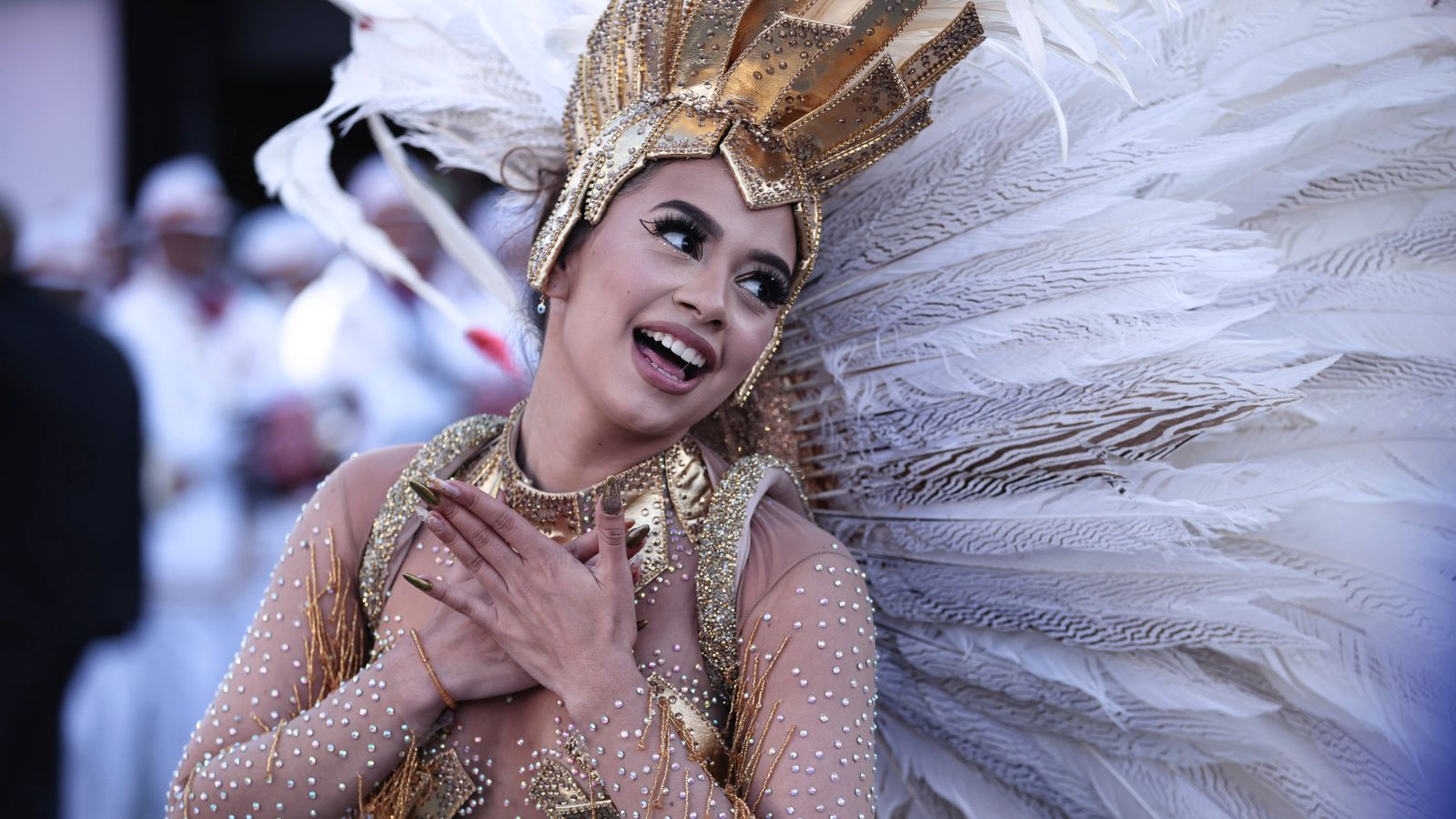Carnivals have taken place in Rio de Janeiro and Sao Paulo following a two-year break because of the coronavirus pandemic.
Rio’s Sambadrome – where the most expensive seats are almost £1,000 – was buzzing with flamboyant dancers in spectacular costumes.
It has been home to the parade since the 1980s and is symbolic of Brazil’s carnival festivities.
During the pandemic, it was transformed into a vaccination station and a shelter for more than 400 homeless people.
Ketula Mello, 38, a muse at the Imperatriz Leopoldinense samba school, said she was thrilled to be back.
“These two years were horrible. Now we can be happy again,” she said, dressed in a black and white costume made of shells.
Brazil confirmed its first cases of COVID-19 in mid-March 2020, just after that year’s carnival festivities concluded.
The 2021 event was cancelled because of the Delta variant, and this year’s celebrations were postponed by two months due to the Omicron variant.
Many jobs are created by the samba schools’ carnival preparations, employing countless seamstresses, welders and costume designers among others.
For months beforehand, dancers and drummers take part in rehearsals.
Tickets are often free for those involved with the parades all year round.
One of them, 66-year-old Juciara do Nascimento Santos, said people had to “take care of ourselves” during the pandemic in order to “be here today celebrating life”.
There were also street parties across Rio despite the City Hall denying authorisation for them to take place.






















